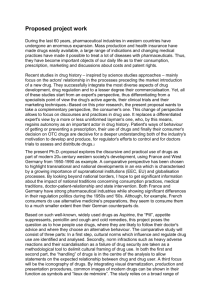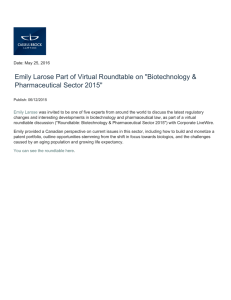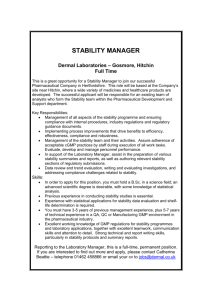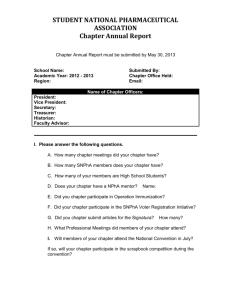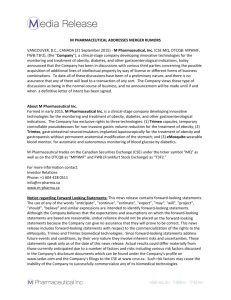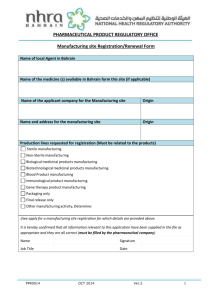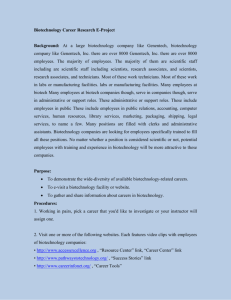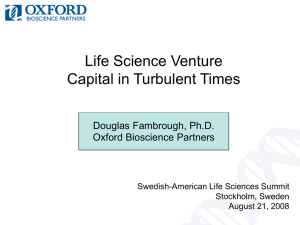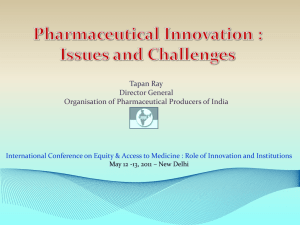Life Science Industry Trends
advertisement
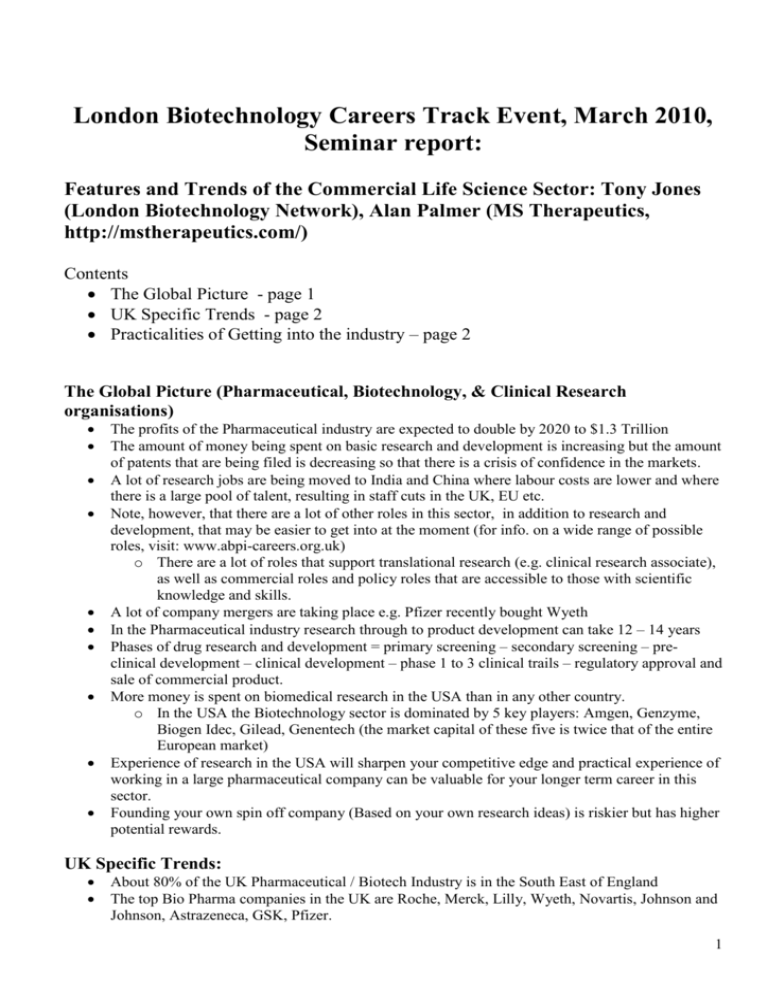
London Biotechnology Careers Track Event, March 2010, Seminar report: Features and Trends of the Commercial Life Science Sector: Tony Jones (London Biotechnology Network), Alan Palmer (MS Therapeutics, http://mstherapeutics.com/) Contents The Global Picture - page 1 UK Specific Trends - page 2 Practicalities of Getting into the industry – page 2 The Global Picture (Pharmaceutical, Biotechnology, & Clinical Research organisations) The profits of the Pharmaceutical industry are expected to double by 2020 to $1.3 Trillion The amount of money being spent on basic research and development is increasing but the amount of patents that are being filed is decreasing so that there is a crisis of confidence in the markets. A lot of research jobs are being moved to India and China where labour costs are lower and where there is a large pool of talent, resulting in staff cuts in the UK, EU etc. Note, however, that there are a lot of other roles in this sector, in addition to research and development, that may be easier to get into at the moment (for info. on a wide range of possible roles, visit: www.abpi-careers.org.uk) o There are a lot of roles that support translational research (e.g. clinical research associate), as well as commercial roles and policy roles that are accessible to those with scientific knowledge and skills. A lot of company mergers are taking place e.g. Pfizer recently bought Wyeth In the Pharmaceutical industry research through to product development can take 12 – 14 years Phases of drug research and development = primary screening – secondary screening – preclinical development – clinical development – phase 1 to 3 clinical trails – regulatory approval and sale of commercial product. More money is spent on biomedical research in the USA than in any other country. o In the USA the Biotechnology sector is dominated by 5 key players: Amgen, Genzyme, Biogen Idec, Gilead, Genentech (the market capital of these five is twice that of the entire European market) Experience of research in the USA will sharpen your competitive edge and practical experience of working in a large pharmaceutical company can be valuable for your longer term career in this sector. Founding your own spin off company (Based on your own research ideas) is riskier but has higher potential rewards. UK Specific Trends: About 80% of the UK Pharmaceutical / Biotech Industry is in the South East of England The top Bio Pharma companies in the UK are Roche, Merck, Lilly, Wyeth, Novartis, Johnson and Johnson, Astrazeneca, GSK, Pfizer. 1 Pressures on the UK industry include; a lack of funding, the nature of the UK’s healthcare system (e.g. regulation of drugs pricing & ‘rationing’ of drugs & treatments), general changes in the global industry (see above), changes in government and regulation. A lot of money is focussed on cancer and neurological conditions. The government has set up major disease research networks for Cancer, Stroke, Diabetes, Dementia etc (via the National Institute for Health Research, NIHR http://www.nihr.ac.uk/Pages/default.aspx) The NIHR is creating a new Office for Clinical Research Infrastructure (NOCRI) to facilitate collaborations between NIHR-funded infrastructure and funders of research, including industry. Future developments include the creation of the London – Cambridge Bio-Corridor (http://www.cambridge-biomedical.co.uk/assets/x/50185) Practicalities of Getting into the Industry What can make you attractive to employers– for the Pharmaceutical sector; a few years of post doctoral experience can be useful in demonstrating your independent research capabilities. You need to maximise your research profile, publish papers (you must be a major contributor) get grants, and have a defined research focus e.g. brain disorders and their treatment. ‘You must have mastery of one particular area but also an awareness of the whole’. Also, be clear about your ‘Unique Selling Points’. A lot of jobs in the sector are not advertised – Many smaller companies find it expensive to advertise jobs and process many applicantions so a lot use their research networks to find suitable talent e.g. academics and post docs they may have had contact with via collaborations etc. o Note from careers adviser # 1 – To access this ‘hidden job market’ think of establishing contacts and building non-academic networks by attending formal networking events e.g. LBN BioWednesdays (www.londonbiotechnology.co.uk) joining online networks e.g. LinkedIn, o Note from careers adviser # 2 - Many commercial scientific research organisations recruit staff using a preferred recruitment agency. It may be worth trying to speak to someone in your target company to find out if they do have a preferred agency. For lists of recruitment agencies that provide staffing for Biotech, Pharma and Contract Research organisations visit: http://www.agencycentral.co.uk/agencysearch/science/agencysearch.htm. For information on how to use agencies effectively download our guide at: http://www.careers.lon.ac.uk/files/pdf/RecruitmentAgencies0910.pdf 2
